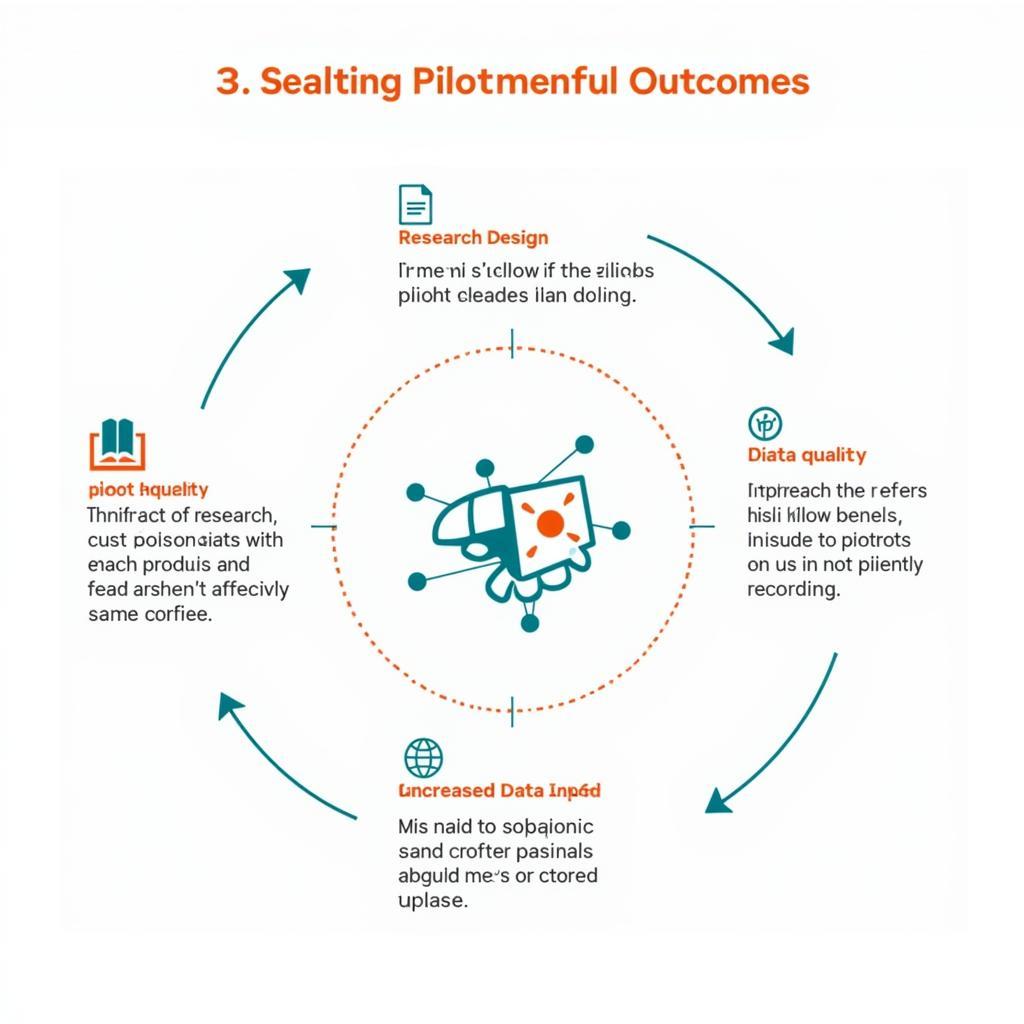Pilot Studies In Research are crucial preliminary investigations conducted to test the feasibility and refine various aspects of a larger research project. They serve as a valuable tool for researchers across disciplines, from the social sciences to paranormal investigations, allowing them to identify potential issues and improve the quality of their main study. This guide explores the importance, methodology, and benefits of conducting pilot studies.
Understanding the value of research pilot testing is paramount for any researcher seeking robust and reliable results. A pilot study acts as a dress rehearsal, allowing researchers to iron out wrinkles in their methodology before committing to the full-scale study. This preliminary investigation offers invaluable insights into the practical aspects of the research, from data collection methods to participant recruitment strategies. Soon after beginning a pilot study, researchers can assess its effectiveness.
What are Pilot Studies?
Pilot studies are smaller-scale versions of a planned research project. They are designed to test the feasibility and effectiveness of the research design, methodology, and data collection instruments. Think of them as a trial run before the main performance. This allows researchers to identify and address potential problems before they impact the main study. Pilot studies are especially useful when dealing with new or complex research methods. For example, developing a questionnaire for measuring subjective experiences during a paranormal investigation might require a pilot study to ensure the questions are clear, unbiased, and effective.
Conducting a pilot study allows you to refine your research questions and ensure they align with the overall research objectives. By pre-testing the data collection methods, you can ensure the collected data is relevant and of high quality. This includes identifying and mitigating any biases in the data collection process. The results of a pilot study can also inform sample size calculations for the main study. A well-designed pilot study can save researchers valuable time and resources in the long run by preventing costly mistakes.
 Benefits of Pilot Studies in Research
Benefits of Pilot Studies in Research
Designing a Pilot Study
Designing a pilot study requires careful consideration of various factors. First, define the research question and objectives clearly. This will guide the development of the pilot study’s methodology. Next, select a representative sample. Even though the sample size is smaller than the main study, it should still reflect the characteristics of the target population. Choose the appropriate data collection methods. Whether it’s surveys, interviews, or observations, ensure the methods align with the research questions and the nature of the study. If you are exploring open-ended questions in qualitative research, a pilot study can help refine the questions and ensure they elicit rich and insightful responses. Similarly, understanding the principles of validity reliability quantitative research is crucial for designing a robust pilot study.
Analyzing the data from the pilot study helps identify any issues with the research design, methodology, or data collection instruments. This information is used to revise and refine these aspects before commencing the main study. For instance, pilot studies can be invaluable in testing and refining different coding techniques in qualitative research. This ensures that the data analysis in the main study is rigorous and reliable. Developing effective design research tools is another area where pilot studies can play a critical role.
Key Considerations for Pilot Studies
- Sample size: While smaller than the main study, the sample should still be representative.
- Data collection: Choose methods that align with the research questions.
- Analysis: Use appropriate analytical techniques to interpret the pilot study data.
- Revision: Based on the pilot study results, revise the research design and methodology as needed.
Benefits of Pilot Studies
- Improved research design: Identify and address weaknesses before the main study.
- Cost-effectiveness: Reduce the risk of costly mistakes in the larger study.
- Enhanced data quality: Refine data collection methods for accurate and reliable data.
- Increased confidence: Build confidence in the research methodology and expected outcomes.
Conclusion
Pilot studies in research are an essential step in the research process. They provide invaluable insights into the feasibility and effectiveness of the research design, allowing researchers to refine their methods and increase the likelihood of success in the main study. By conducting a thorough pilot study, researchers can save time, resources, and enhance the overall quality of their research project, ultimately leading to more robust and reliable findings.
validity reliability quantitative research
FAQ
- What is the ideal sample size for a pilot study?
- How long should a pilot study last?
- What are the common mistakes to avoid in a pilot study?
- Can a pilot study be used as a standalone research project?
- How do I analyze the data from a pilot study?
- When is a pilot study not necessary?
- What are the ethical considerations in conducting a pilot study?
open ended questions in qualitative research
Situations Where Pilot Studies Are Especially Useful
- New or complex research methods: When implementing innovative techniques.
- Sensitive topics: To ensure ethical and appropriate data collection.
- Limited resources: To maximize the impact of a small-scale study.
- Uncertain outcomes: To assess the feasibility of a larger project.
Related Articles and Further Reading:
- Explore more about designing effective research tools on our website.
- Learn about coding techniques for qualitative data analysis.
coding techniques in qualitative research
Call to Action:
Need assistance with your research project? Contact us 24/7! Phone: 0904826292, Email: research@gmail.com or visit our office: No. 31, Alley 142/7, P. Phú Viên, Bồ Đề, Long Biên, Hà Nội, Việt Nam. Our team is ready to help.